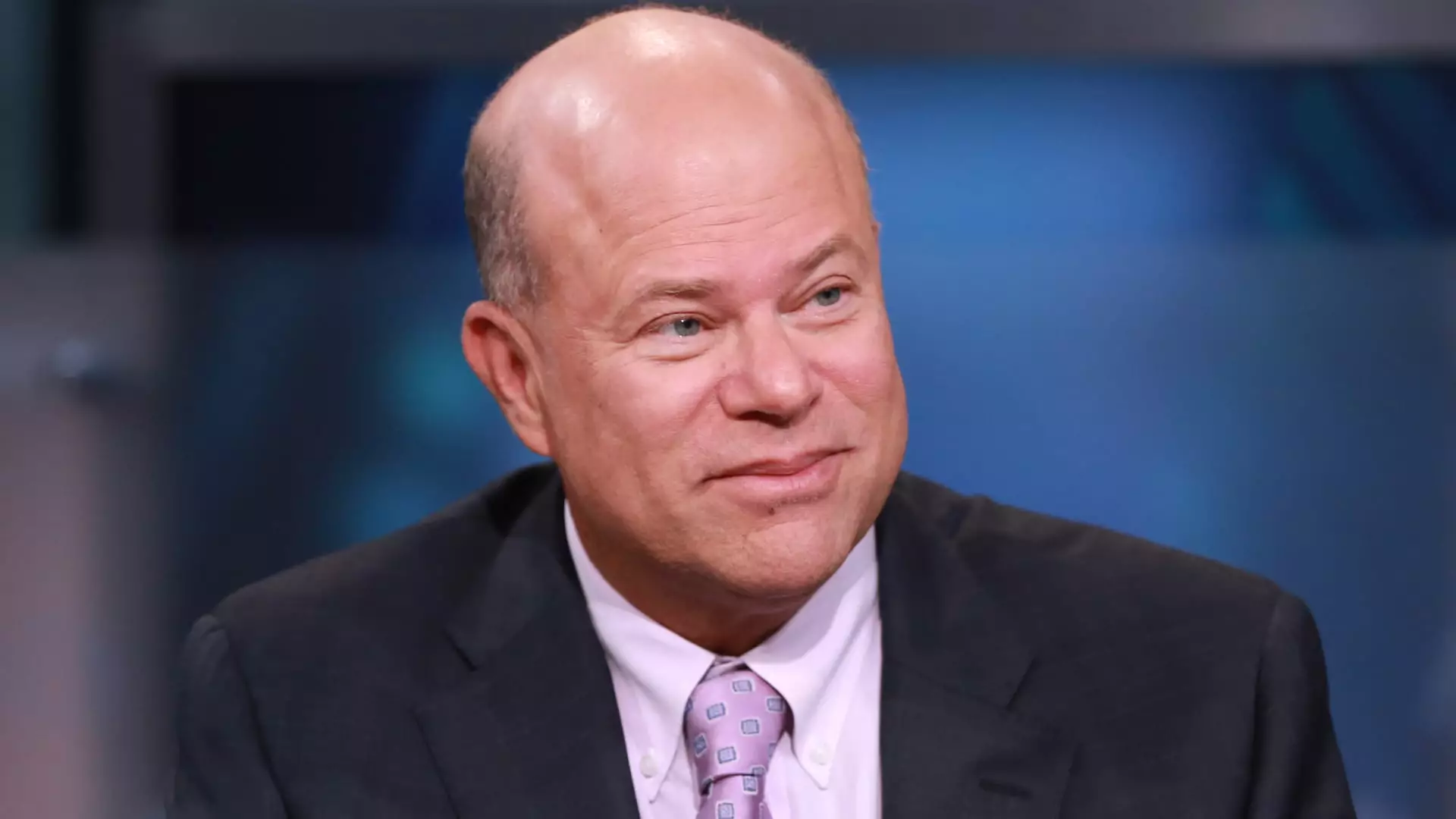The financial landscape is ever-changing, but one constant in investor sentiment is the trust placed in the Federal Reserve’s policy maneuvers. Esteemed investor David Tepper recently emphasized the importance of this trust during an appearance on CNBC’s “Squawk Box.” He argued that the Federal Reserve’s need to maintain its credibility essentially obliges it to follow through on its promises regarding interest rate changes. Tepper’s argument hinges on the belief that when Federal Reserve Chair Jerome Powell and his colleagues communicate their intentions, seasoned investors should heed those words closely. The implication is clear: the Fed’s credibility is on the line, and any deviation from their stated path could undermine the central bank’s authority.
These reflections come on the heels of a significant fiscal move last week when the Fed announced a reduction of half a percentage point in benchmark interest rates. This marks the beginning of a new easing cycle, which, despite being characterized as aggressive, unfolds against a backdrop of a rather stable economy. The semantics of Powell’s announcements are crucial here; he termed the rate cut a “recalibration,” elucidating that while this step may be part of a broader strategy, it doesn’t guarantee a repetitive pattern of cuts in subsequent meetings.
However, Tepper’s optimism around the Fed’s plans is counterbalanced by his concerns regarding the current market environment. His unease is apparent as he draws parallels to the economic climate of the 1990s. With the Fed aggressively cutting rates even as vital economic indicators—including a robust growth rate forecast from the Atlanta Fed—appear solid, Tepper voices valid apprehensions about potential market bubbles. Exploring the bygone market strategies of the late ’90s, where excessive enthusiasm led to the infamous market bubble preceding Y2K, Tepper recognizes the fine line between economic stability and speculative excess.
The economy, while stable now, is experiencing signs of sluggishness in the labor market—a factor that has undoubtedly influenced the Fed’s decision to lower interest rates. Tepper’s cautionary stance illustrates a deeper understanding of the cyclical nature of markets. While he acknowledges the immediate benefits provided by lower interest rates—increased liquidity and cheaper borrowing costs—he remains hesitant about long-term valuation perspectives in U.S. equities.
Notably, Tepper’s approach is emblematic of his status as a value investor. He recognizes the potential for equity markets to generate immediate returns owing to easy monetary policy but juxtaposes this with the core values of sound investing practices. Tepper’s admission of discomfort with U.S. market valuations, despite the temptation to invest amidst favorable conditions, speaks volumes to the broader investment community. It reflects the ongoing battle between instinctual market exuberance and the disciplined scrutiny expected of seasoned investors.
Moreover, Tepper has signaled a strategic pivot towards international markets, explicitly favoring Asian and European equities over U.S. stocks. This shift indicates a diversification strategy that relies not just on macroeconomic factors in the U.S. but also on reacting to policy measures undertaken by other governments to stimulate their economies. Tepper’s decision to invest substantially in China, buoyed by recent rate cuts and government support measures aimed at enhancing economic performance, showcases an adaptive investment strategy in a globalized economy.
David Tepper’s insights provide a multi-faceted view of the current economic climate and its implications for investors. While he recognizes the immediate benefits of the Federal Reserve’s interest rate adjustments, his concerns regarding market dynamics underscore a prudent approach to investing. By articulating the complexities of the economic landscape, Tepper challenges investors to carefully consider both the quantitative data and the qualitative signals when formulating investment strategies. As market conditions evolve, investment decisions will require a balance of conviction, strategic foresight, and an acute awareness of broader global influences. In this environment, wisdom dictates that investors remain vigilant, informed, and adaptable.

